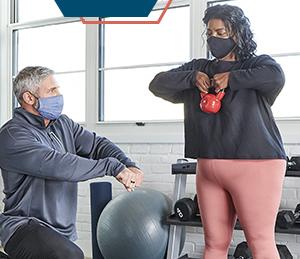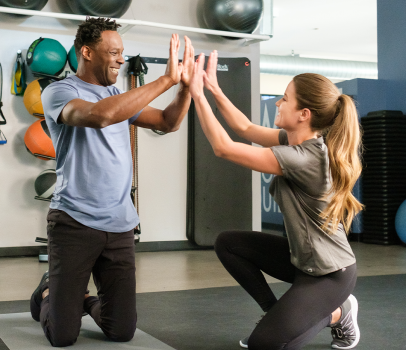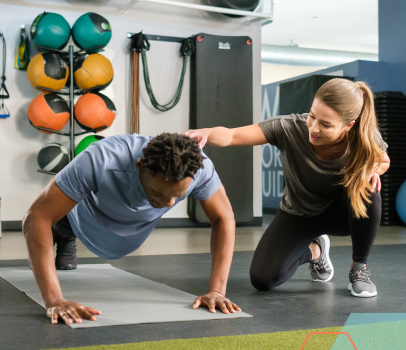Page 1 of 5 Next

Too much of this toxic ingredient will rob your health
Mar 29, 2022
How does added sugar in food affect your health and well-being? Find our by reading this blog.

Halloween and Turkey Hacks
Oct 10, 2021
Making pumpkin seeds taste good can be tricky. Learn great kitchen hacks to best truss a turkey.

What Fuels You Can Fuel Your Fitness: What’s Your Why?
Jul 15, 2024
Setting and achieving goals is a motivating, exciting part of the process of getting healthy—and at the Fitness Together® brand, the reason behind your desire to get fit matters. The brand believes that understanding your why is vital to creating a drive that stands the test of time.
Here, let’s explore why motivation is so important when it comes to keeping up with healthy habits, how to determine what makes you feel your best, how to begin the process of finding your why, and how a Fitness Together studio’s personal trainers work with you to create long-term habits that will keep you moving toward your strongest, healthiest self.

Ready for Anything: Feeling Great All Summer!
Jun 15, 2024
School is out, vacation plans are on, and you’re ready for all the fun and activity that summer will bring your way. If you’re someone who seriously boosts your activity level when it’s warm and the sun is shining, it’s key to give your body a little extra TLC to make sure you’re up for that last-minute hike, prepped with a healthy and delicious option for that last-minute picnic, or prepared for spending the day in the air (or on the road) as you make it to your favorite vacation spot.
Here’s how you can use nutrition, stress management, and healthy exercise to help make sure you’re ready for anything this summer. Let’s dig in!
Here’s how you can use nutrition, stress management, and healthy exercise to help make sure you’re ready for anything this summer. Let’s dig in

Summer is Just Around the Corner!
May 15, 2024
You can feel summer in the air—the birds are chirping, the flowers are blooming, and each day is a little bit longer than the last. Most of us find ourselves spending more and more time outside as the air begins to warm. Fitness Together® studios are working to help you be ready for anything and everything that summer has to bring!
Here, let’s take a look at some simple strategies you can implement to support a healthy summer, as well as some of the reasons why summer is a fantastic time to take your health to the next level.

Making Healthy Habits Stick
Apr 15, 2024
If you struggle to keep your motivation high after the initial excitement of a goal fades, you’re not alone. Willpower eventually runs out, leaving you to fall back on your habits to keep you moving forward. Here, you’ll explore how you can create habits that stick, even after the excitement of beginning to work towards a goal begins to fade.

Results come from work—not luck. Let's get started!
Mar 18, 2024
It can be all too easy to attribute a healthy, fit body and mind to luck, but nothing could be further from the truth. If you’ve tried to hit fitness goals and have missed the mark you set for yourself, you’re not alone! Taking control of your fitness journey isn’t just empowering—it also starts the process of digging in and working toward the success you want.

Is Exercise a Form of Self-Love? Absolutely—Here’s Why
Feb 14, 2024
At Fitness Together® studios, experienced personal trainers are here to support you no matter where you’re at in your journey. Here, we’ll take a look at how you can change your mindset when it comes to working toward becoming your healthiest self.

Fitness Together Studios Got You–No Matter the Weather
Jan 29, 2024
Winter weather is finally here to stay, and at a Fitness Together® studio, the personal trainers are on your team through every step of your fitness journey. No matter what mother nature throws at you, a Fitness Together team is with you to help you feel your best. If you’re having a tough time staying active during the winter months, you’re not alone. American adults are 31% less active during the winter months.

Your Meal Prep How-To Guide
Nov 16, 2023
Everything You Need to Know to Get Set for Success
You already know that you feel best when you eat whole foods and stick to a nutrition plan that works for you, but it can be hard to stay on track sometimes–especially when life gets hectic. At a Fitness Together® studio, the team is there to support you! Everyone is in this together, and the personal trainers are excited to help you boost your wellness, no matter where you’re starting.
Page 1 of 5 Next
